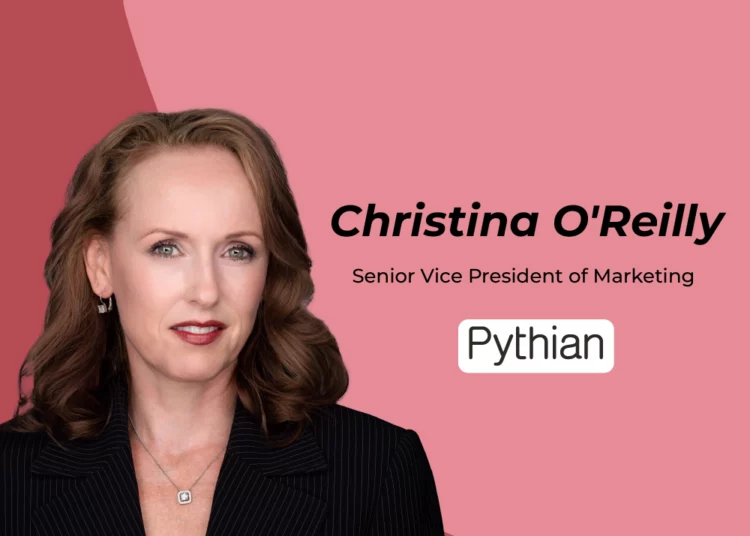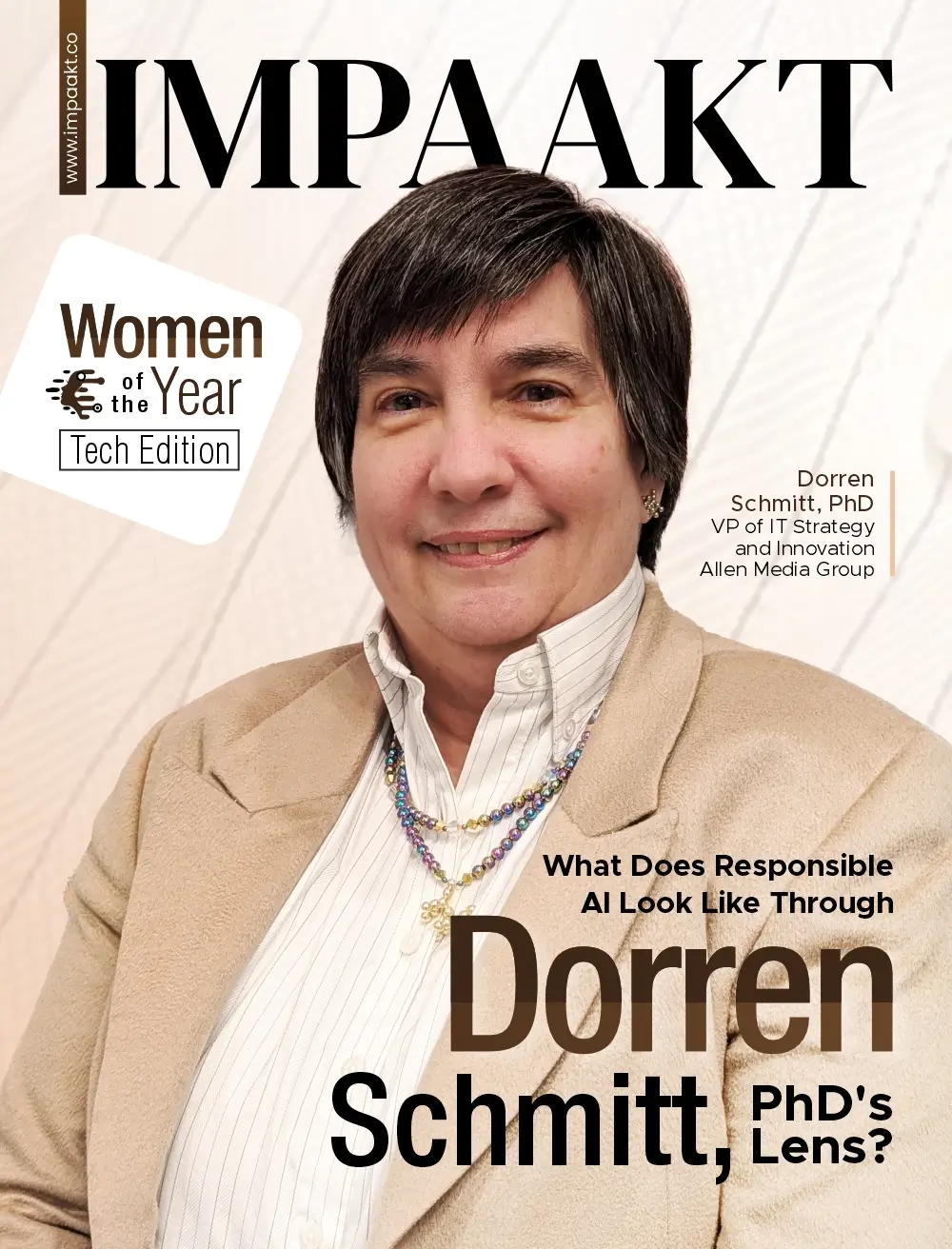The world of marketing is a volatile and unforgiving terrain, where trends can shift rapidly and what works today may be obsolete tomorrow. But for Christina M.P.O., the Senior Vice President of Marketing at Pythian, that’s not a problem—it’s a thrill. She doesn’t just keep up with change; she leads it.
Her ascent to this prestigious position is no accident; it is the result of relentless effort, constant evolution, and strategic networking. From the very beginning, Christina dedicated herself to mastering the marketing domain, knowing that success demands more than just talent—it requires perseverance and adaptability.
Her journey, spanning tech startups to global titans like SAP and Microsoft, has honed her unique approach to marketing leadership. She combines the nimbleness and innovation of startups with the scalability and strategic depth of global enterprises, crafting marketing strategies that are both dynamic and robust. Christina’s tenure at Pythian has been marked by transformative initiatives, including a groundbreaking website launch featuring an interactive “Easter egg” hunt that not only engaged users but also enhanced SEO performance.
Christina’s passion for data, AI, and customer-centric marketing is reshaping the future. She advocates for a balanced approach to technology and inclusiveness, emphasizing ethical AI use and genuine customer engagement. Her thought leadership addresses crucial issues like the overuse of content gating and the importance of fostering an open, feedback-rich culture.
Inspired by her result-driven approach, we at IMPAAKT got into conversation with Christina to learn more about her journey and gain insights on the evolving marketing landscape.
Below are the highlights of the interview:
Christina, can you share your journey that led you to become the Senior Vice President of Marketing at Pythian?
My journey has been a mix of hard work, constant learning, and building strong relationships, with a bit of luck along the way.
From the start, I worked tirelessly, knowing that success in marketing demands dedication and perseverance. Balancing everything was tough at times, and I often worried about burning out but somehow managed to figure it out along the way.
Early on, I realized the importance of a strong network. Over time, these connections became a supportive community of colleagues and council, offering advice, opportunities, and new perspectives. It wasn’t just about professional contacts—it was about building a network of genuinely caring people who helped me grow (and I try to pay it forward whenever I can).
Your career spans various industries, from tech startups to global giants like SAP and Microsoft. How has this diverse experience shaped your approach to marketing leadership?
Working in diverse industries, from tech startups to global giants like SAP and Microsoft, has shaped my marketing leadership. Startups taught me agility, innovation, and customer connection, emphasizing resourcefulness and quick pivots based on feedback. At companies like SAP and Microsoft, I learned the importance of scalability, robust processes, and strategic alignment, honing my skills in brand management, collaboration, and stakeholder management.
Combining these experiences, my approach to marketing leadership is both dynamic and strategic. I blend startup innovation and customer focus with the structured, scalable practices of global enterprises. This balance drives adaptive, forward-thinking marketing teams aligned with broader business objectives.
You’ve also navigated the transition from startup to mid-sized company before. What lessons from that experience are you applying at Pythian?
I would say encourage a culture that promotes quick decision-making, flexibility, and growth without sacrificing efficiency and quality.
Invest in your data – what I mean by that is invest the right tools, invest in processes and establish a data governance that identifies key fields that are critical to the business. And spend the time to ensure your data is clean. Tools like AI are great but if the data in which is relying on is flawed or inaccurate, so are your AI insights.
With your background in data, analytics, and AI marketing, how do you see these technologies reshaping the future of marketing by 2024?
Overall, data, analytics, and AI are reshaping the future of marketing by making it more data-driven, personalized, and efficient. Marketers who embrace these technologies will be better equipped to understand their customers, predict trends, and deliver impactful experiences that drive business growth. You’re are going to see things like “hyper-personalization” or an increase in automation, or enhanced customer insights.
As someone who has managed inside sales teams, how do you see the relationship between marketing and sales evolving with the advent of AI and automation?
The integration of AI and automation is transforming the relationship between marketing and sales by fostering greater alignment, data-driven decision-making, and personalized customer engagement.
These technologies enable both teams to work more efficiently and effectively, driving better results and delivering a seamless experience for customers.
Can you highlight some of the most innovative marketing campaigns your team has executed recently?
We recently unveiled our new website, and we used this launch as a way to introduce our fun new mascot. Most importantly, we set the stage for an exciting campaign by introducing an innovative “Easter egg” hunt throughout the site. Strategically hidden images on campaign-related pages enticed visitors to explore the site, engaging deeply with our content while entering them into a prize draw. This not only created a fun and interactive user experience but also boosted our SEO by prompting Google to crawl through our new site more extensively. By tying in the site launch, with our campaign through an “Easter egg” hunt, effectively increased awareness and interest in our campaign, demonstrating a creative approach that enhanced user engagement, promoted our mascot, and optimized our online presence.
What topics are you most passionate about when it comes to creating thought leadership content, and why?
As a marketing executive, I’m most passionate about creating thought leadership content on the following topics:
- Inclusiveness in Marketing: Inclusiveness is a core value for me. I believe that true leadership means embodying inclusiveness, not just talking about it. Creating content that explores how to build inclusive marketing strategies, ensuring representation and accessibility, and promoting diverse voices is essential. This fosters a sense of belonging and trust among diverse audiences and helps brands connect more deeply with their customers.
- AI and Data-Driven Marketing: AI-driven personalization and data analytics are transforming the marketing landscape. I’m passionate about discussing the ethical use of AI, and why it’s crucial to include in the conversation the ethical, practical, and strategic boundaries when implementing AI technologies, rather than just focusing on rapid adoption and scaling of these technologies, and how brands can leverage AI to create meaningful and personalized customer experiences while maintaining trust and transparency.
- Customer-Centric Marketing: Building content that emphasizes the importance of understanding and meeting customer needs is crucial. We constantly strive to create strategies for enhancing customer engagement, fostering loyalty, and creating value through tailored marketing efforts. Highlighting real-world examples and success stories can inspire others to adopt a customer-first approach.
If you could change one thing about the current marketing landscape, what would it be and why?
The need to gate everything – regardless of the content type or need. I think it only creates more friction for potential customers and potentially stifle engagement.
Gating content has a time and a place and is an important measurement for lead generation. Overgating, however, can create unnecessary friction, hinder engagement, and negatively impact user experience. Striking a balance by offering valuable content with open access and strategically gating high-value resources can enhance user interaction, build trust, and still effectively capture leads.
What legacy do you hope to leave behind through your work in marketing and leadership?
The legacy I hope to leave in marketing and leadership is all about fostering a culture where honest, transparent feedback is valued and encouraged. I want my team to feel supported when sharing their genuine insights and perspectives.
By creating an environment where feedback is received openly and constructively, my goal is to drive continuous improvement and innovation. It’s important to me that everyone feels heard and that their feedback helps us grow, both personally and as an organization.
When people are empowered to speak candidly and know their feedback will be met with respect and positivity, it leads to more collaborative and dynamic teams. This culture of openness not only boosts performance but also builds trust and strengthens relationships, making for a more engaged and effective team.
You have been a seasoned marketing executive. What advice would you give to emerging marketers entering the field in this era of rapid technological change?
- Conflict is not always bad. And by embracing conflict, leaders can improve communication, promote collaboration, and foster a more positive workplace culture.
- be curious (not judgemental)
- Always be learning
- Adaptability is Key: The marketing landscape is continuously evolving. Be flexible and adaptable, willing to pivot strategies as new technologies and consumer behaviours emerge. Embrace change as an opportunity rather than a challenge.
- Build Strong Relationships: In an increasingly digital world, human connections are more valuable than ever. Invest in building and maintaining strong relationships with clients, colleagues, and industry peers. Networking and collaboration can provide invaluable insights and opportunities.
More about the Christina
Christina is a veteran marketing executive who excels at turning bold strategies into actionable results. Renowned for her award-winning, creative approaches in branding, demand generation, and thought leadership, she consistently drives growth and innovation, setting new standards in the marketing landscape.











